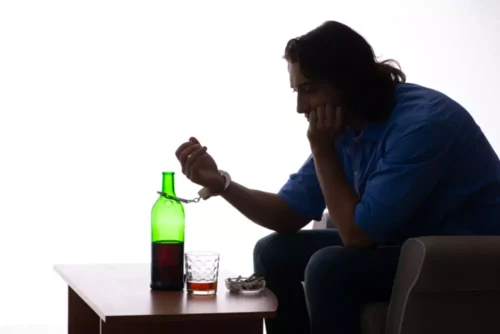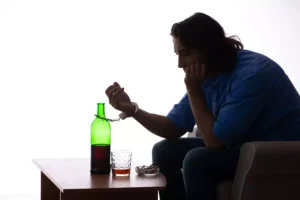
An end-stage alcoholic will experience life-threatening withdrawal symptoms when they stop drinking. This is why detoxing should be done with a medical professional’s supervision at an addiction treatment center. When the individual does not consume alcohol regularly, they may experience withdrawal symptoms and intense cravings. Drinking heavily for a prolonged period can lead to tolerance–needing to consume more alcohol to get the same effects. People who develop tolerance are more likely to develop alcohol addiction and may be at increased risk of experiencing the late stages of alcohol intoxication.
What Happens When You’re Intoxicated
The level of intoxication depends on how much alcohol has been consumed. These resources stages of alcohol intoxication work synergistically to foster recovery and help individuals maintain sobriety in the long run. They are peer-led organizations dedicated to helping each other remain sober. Support groups can be the first step towards recovery or part of a long-term aftercare plan. When combined with other evidence-based therapies, such as cognitive behavioral therapy (CBT), MAT can help prevent relapse and increase your chance of recovery.
Get Accredited Treatment Programs at Purpose
Alcohol misuse and addiction can have harrowing and hazardous side effects at every phase. Effective, evidence-based treatment can help and recovery is possible. Moving Mountains takes a whole-person approach to recovery by offering a continuum of care, clinically proven treatments, and holistic healing. Our compassionate, friendly staff is available 24-hours a day to take your call and help you begin your recovery journey. If you or a loved one needs help to stop drinking, reach out to the Moving Mountains Recovery specialists to learn more about our holistic alcohol rehab programs in New Jersey.
Get Help Today at Our Alcohol Treatment Center

The person may be completely unconscious with no reaction to their surroundings. If you suspect someone is experiencing alcohol poisoning, call 911 immediately. People in this stage of intoxication are very likely to forget things happening around or to them. They might “black out” without actually losing consciousness and may not be able to feel pain. Outpatient treatment is less intensive than inpatient or partial hospitalization programs.
- Swallowing everything, including their vomit, could result in death.
- When drinking with a heavy hand, it is especially critical to refrain from overdoing it.
- At a BAC of 0.05 or less, the individual is unlikely to appear intoxicated.
- The Centers for Disease Control and Prevention estimates excessive alcohol use causes approximately 88,000 deaths annually in the United States.
- Many people can drink occasionally without negative effects.
- Someone at this stage of intoxication may need emergency assistance for survival.
The chance of an alcohol overdose is very high here, and medical help should be sought immediately. Because the amount of alcohol needed to reach various states of intoxication can vary depending on the individual, what might be a fatal dose for one person may not be for another. Call our hotline at today to speak with an admissions navigator about treatment options for your loved one in order to help with their drinking problem. There’s no obligation to make any decisions right away and all calls are 100% confidential. Alcohol poisoning can result in death through a respiratory arrest, which can occur at a BAC of 0.45 or higher.
What are the six critical signs of alcohol poisoning?
- Learn if you could be experiencing a hernia and what steps to take for proper evaluation and treatment.
- Take the first step towards a new, better life by giving us a call today.
- In the middle stage, the consequences of alcohol use spill over into everyday life.
- It’s essential to be aware of these stages, as they can help gauge how intoxicated you or someone else may be.
The call is free and confidential, and you don’t have to commit to a program to learn more aboutalcohol rehab. Most people call this stage of intoxication being “tipsy.” A person’s BAC at this stage might range from 0.03 to 0.12 percent. If a person has generally consumed two to three drinks as a man or one to two drinks as a woman in an hour, they’ll enter the euphoric stage of intoxication. If a person has consumed one or less drinks per hour, they’re considered to be sober, or low-level intoxicated. The stages of intoxication differ from person to person because they’re based on age, sex, weight, and other factors. Scaling these risky BAC thresholds is not as difficult as some might think.


The earlier they seek treatment, the better their chance of successful recovery. One of the most common types of addiction is alcohol addiction. If it isn’t resolved, the addiction might cause damaged relationships, a poor career, and poor health. For some, it may be as innocuous as taking a message from a previous relationship. For others, though, the promise of getting behind the wheel is a matter of life and death.

Follow us on social media
Someone in this stage usually needs immediate medical help to survive. People who are left to “sleep it off” may end up experiencing hazardously slowed breathing or complete respiratory arrest, or they may aspirate on their own vomit. Other risks include hypothermia, heart arrhythmia, and seizures. After being absorbed in the gastrointestinal tract, alcohol enters the bloodstream, where it travels to all the organs. It can take anywhere from 15–45 minutes for a person to feel the full effects of an alcoholic drink. The duration of alcohol intoxication depends on the quantity of alcohol that a person consumes.
Paying for Treatment
During this stage, consuming alcohol becomes less about social enjoyment and more about fulfilling an increasing compulsion. Physical symptoms may manifest as withdrawal effects like headaches or tremors, highlighting a growing dependency on alcohol. Mental health can also take a toll; prevalent symptoms include heightened anxiety or irritability, particularly when access to alcohol is alcoholism symptoms restricted.


